Hey there! As a landlord, it's essential to keep open lines of communication with your tenants, especially when it comes to understanding the lease clauses that govern their rental agreements. Let's break down some key aspects that might not be immediately clear, ensuring everyone is on the same page. If you're curious to learn more about how these clauses can impact your living situation, read on for a deeper dive into the details!
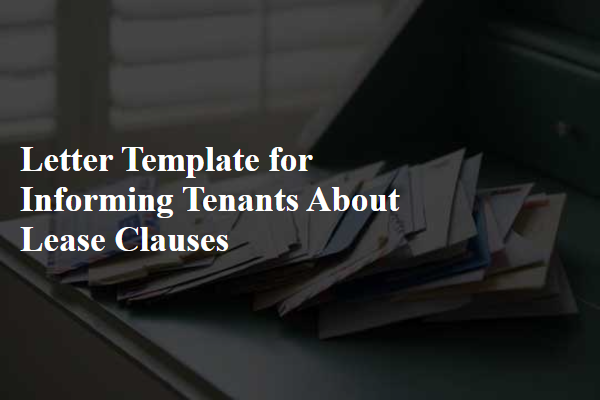
Lease Clause Summary
Lease agreements contain significant clauses important for both landlords and tenants. The lease duration specifies the rental period, typically one year, detailing expectations for termination and renewal. Rent payment clauses outline the amount due, payment methods, and penalties for late payments, which can include fees or interest. Security deposit clauses necessitate upfront payment to cover potential damages, often amounting to one month's rent. Maintenance responsibilities are crucial, detailing obligations for repairs, typically dividing tasks between landlord and tenant. Additionally, clauses on property use restrict activities like subleasing and illegal activities to maintain property integrity. Understanding these lease clauses safeguards tenant rights while ensuring compliance with rental agreements.
Tenant Responsibilities
Tenant responsibilities, in residential leases such as apartments or houses, typically encompass various obligations set forth by landlords to ensure proper maintenance and adherence to community standards. Key duties include timely rent payment, outlined as monthly installments due on the first day of each month, maintaining the property in good condition, which signifies keeping premises clean and reporting any repairs needed, and adhering to noise regulations, often specified as no loud music or disturbances after 10 PM. Tenants must also ensure compliance with local statutes, such as waste disposal regulations, which might include recycling mandates and proper garbage collection schedules. Additionally, responsibilities often extend to securing the property, requiring the use of locks and reporting unauthorized access or vandalism promptly. Failure to comply with these clauses may result in penalties, including eviction notices or loss of security deposit.
Important Deadlines
Lease agreements often include important clauses that establish critical deadlines for tenants, impacting their rights and responsibilities. These deadlines may relate to rent payment dates, procedures for lease renewal, and requirements for providing notice before terminating the lease. For instance, many leases stipulate a specific date, such as the 5th of each month, as the deadline for rent payment, with late fees incurred thereafter. Lease renewal clauses often require tenants to express their intent to renew at least 30 days before the lease expiration date, a common timeframe adopted in various states. Additionally, some leases may specify a period for notifying landlords about maintenance issues, typically 24 to 48 hours, essential for property management. Adhering to these deadlines ensures a smooth tenancy and avoids potential conflicts or misunderstandings with the property owner.
Maintenance and Repairs Protocol
The Maintenance and Repairs Protocol emphasizes the responsibilities of tenants in maintaining their leased premises in good condition. Tenants must report any maintenance issues or necessary repairs promptly to ensure timely resolution and prevent further damage. For example, plumbing issues, such as leaks or clogging, should be reported within 24 hours to minimize water damage risks. The landlord will arrange for authorized personnel to assess and address the repairs, ensuring compliance with local property maintenance regulations. Tenants also have a duty to keep the property clean and free from hazards, contributing to a safe living environment. Any alterations to the property must receive prior written consent from the landlord, adhering to the lease agreement signed at the beginning of the tenancy. Failure to comply with these protocols may lead to financial responsibility for repairs that arise due to neglect or improper maintenance by the tenant.
Penalties and Consequences
Tenants must understand important lease clauses regarding penalties and consequences associated with violations. For instance, a late rent payment may incur a penalty fee of $50 after a grace period of five days, with an additional $10 per day until payment is received. Significant actions, such as unauthorized subletting, can lead to immediate lease termination as per the rental agreement terms. Damage to property and failure to report maintenance issues promptly can result in deducting repair costs from the security deposit, which typically amounts to one month's rent. Familiarity with these stipulations ensures tenants avoid unnecessary financial burdens and disruptions to their residency status.
Letter Template For Informing Tenants About Lease Clauses Samples
Letter template of reminder about lease agreement stipulations for occupants.
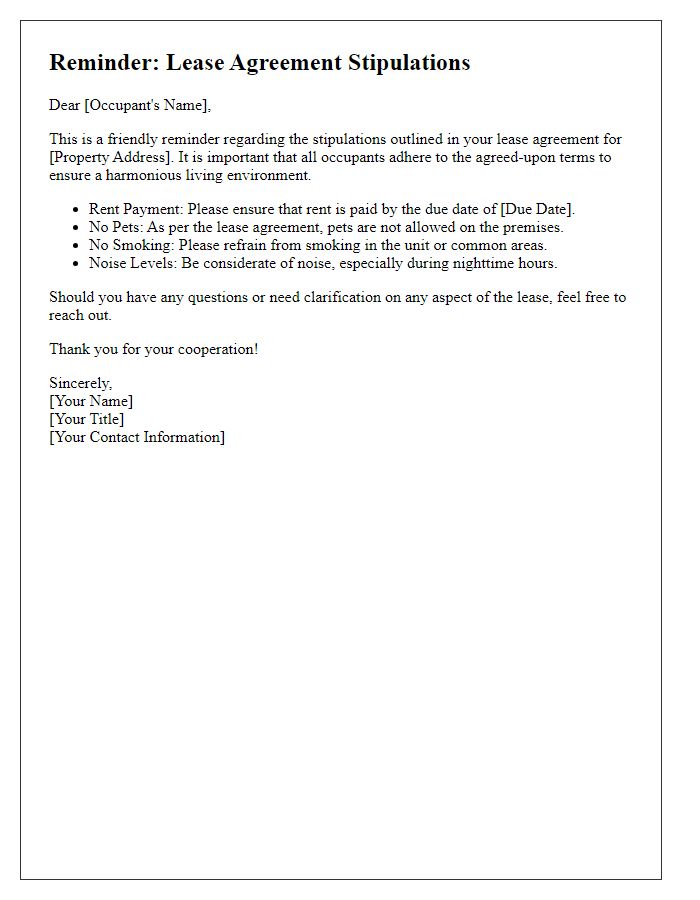
Letter template of explanation of specific lease conditions for renters.
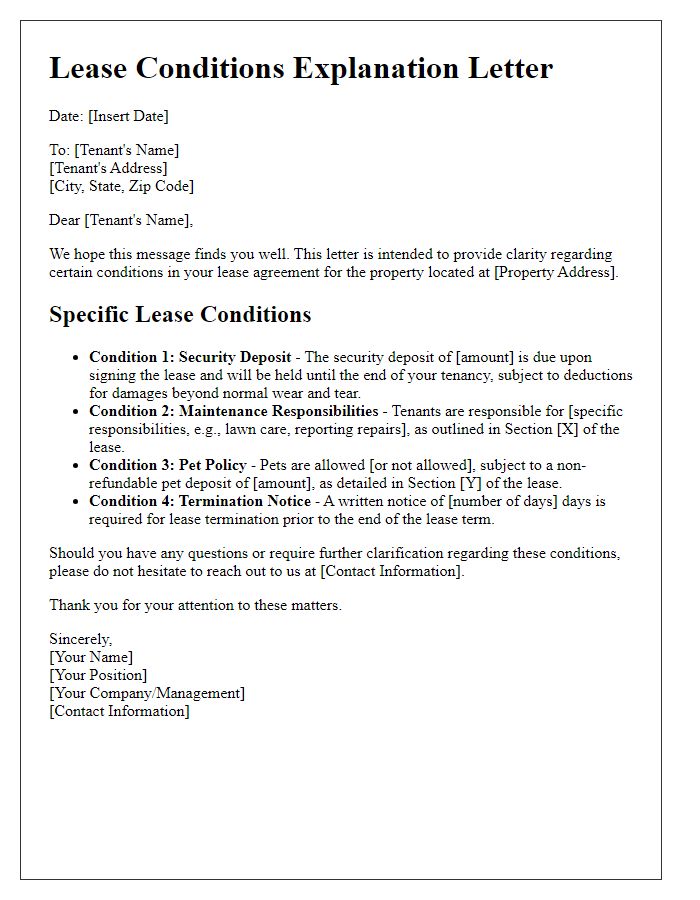

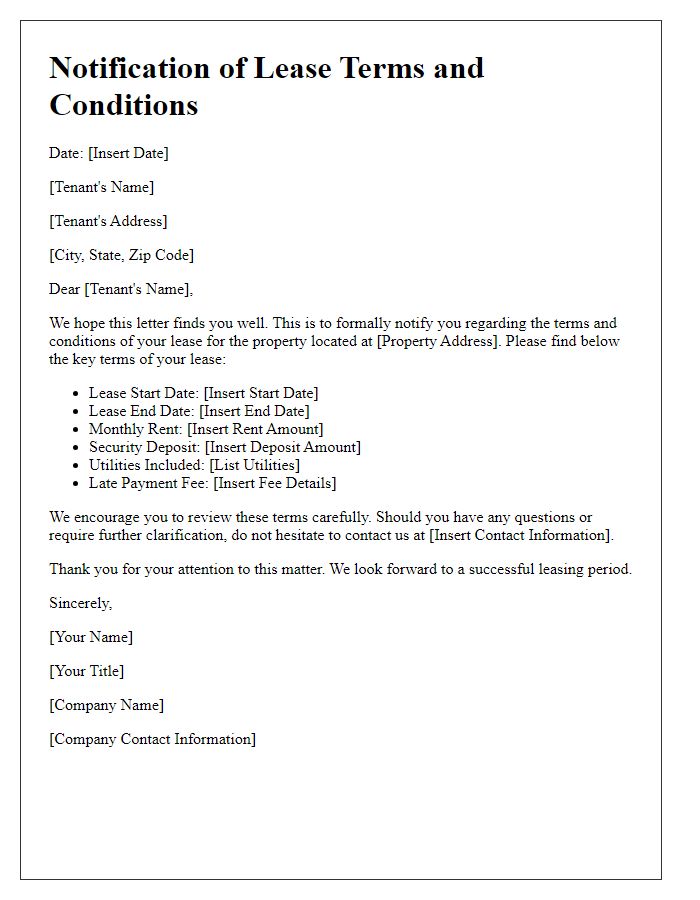
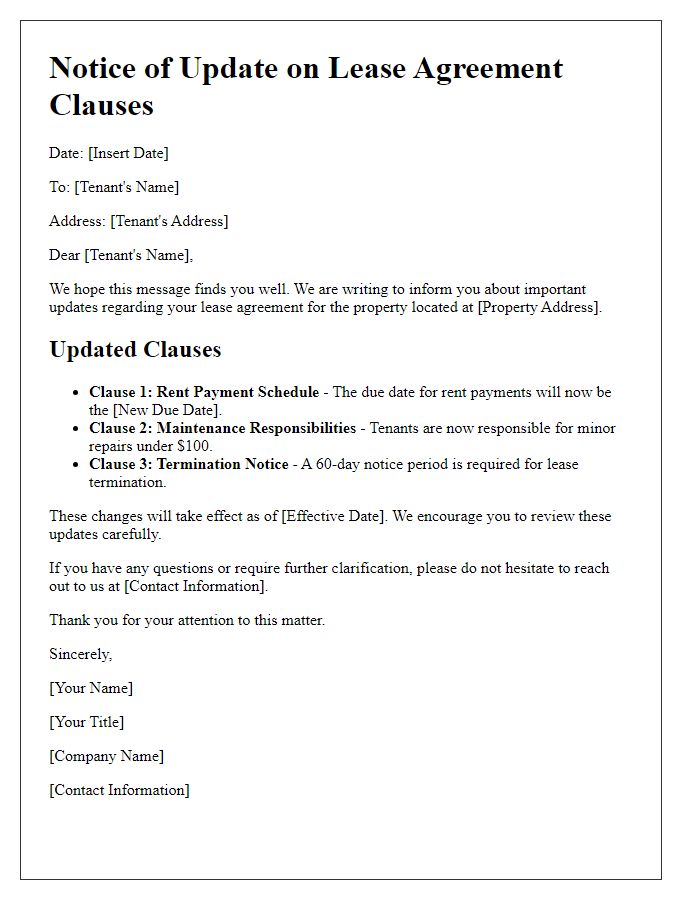
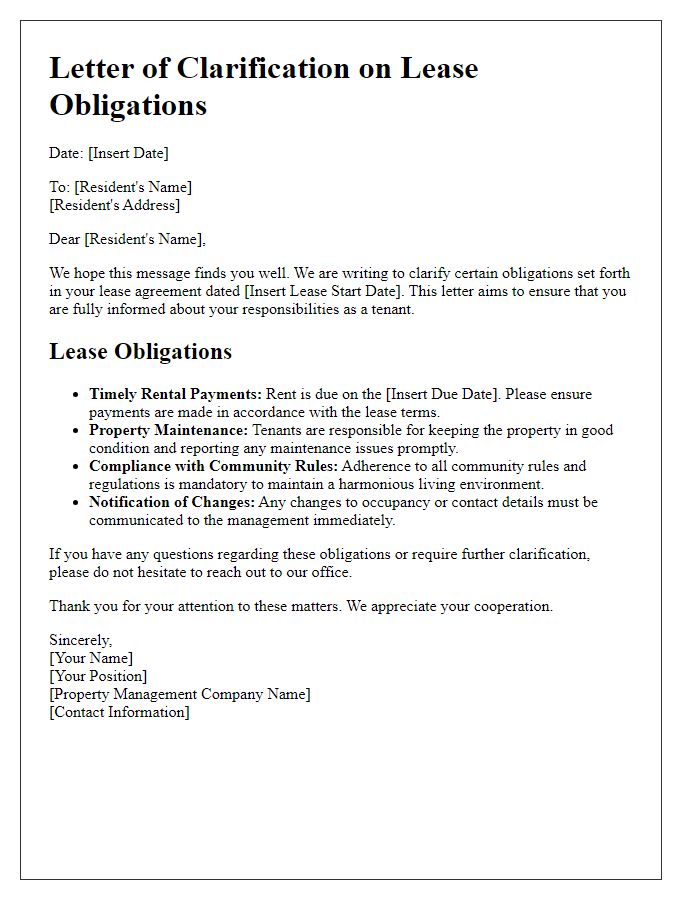
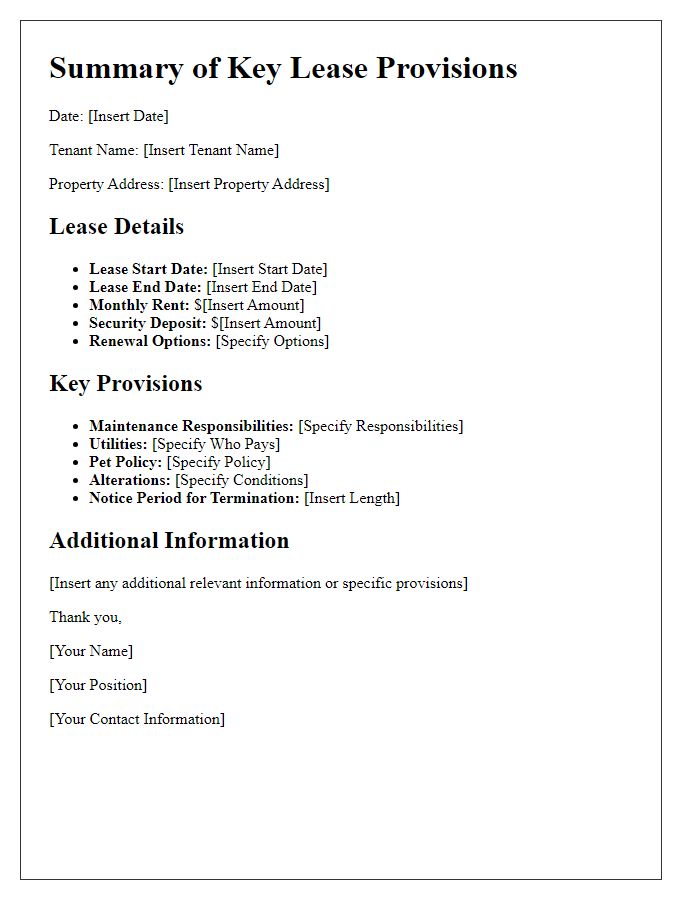
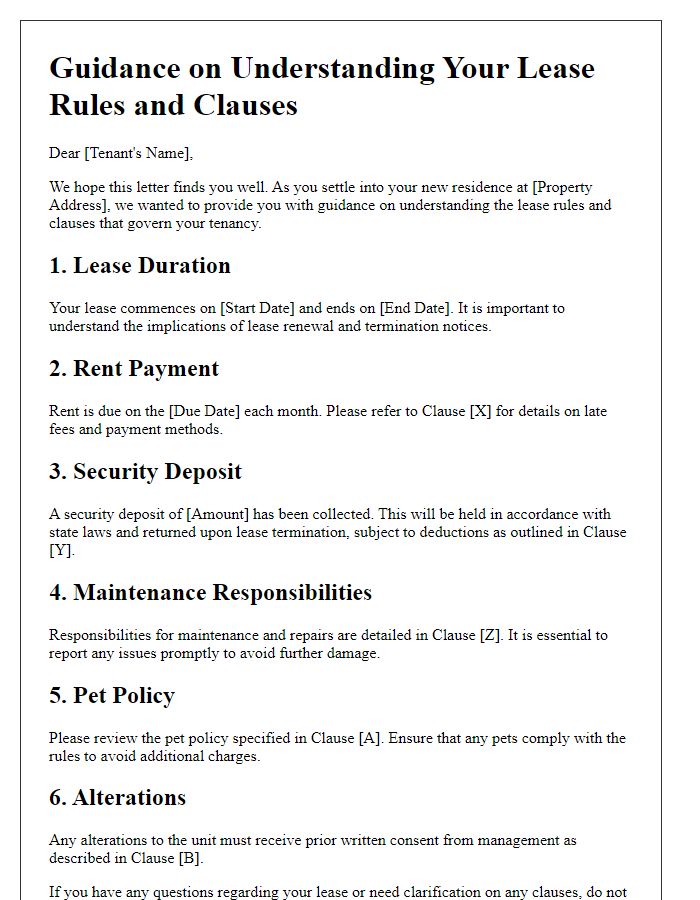
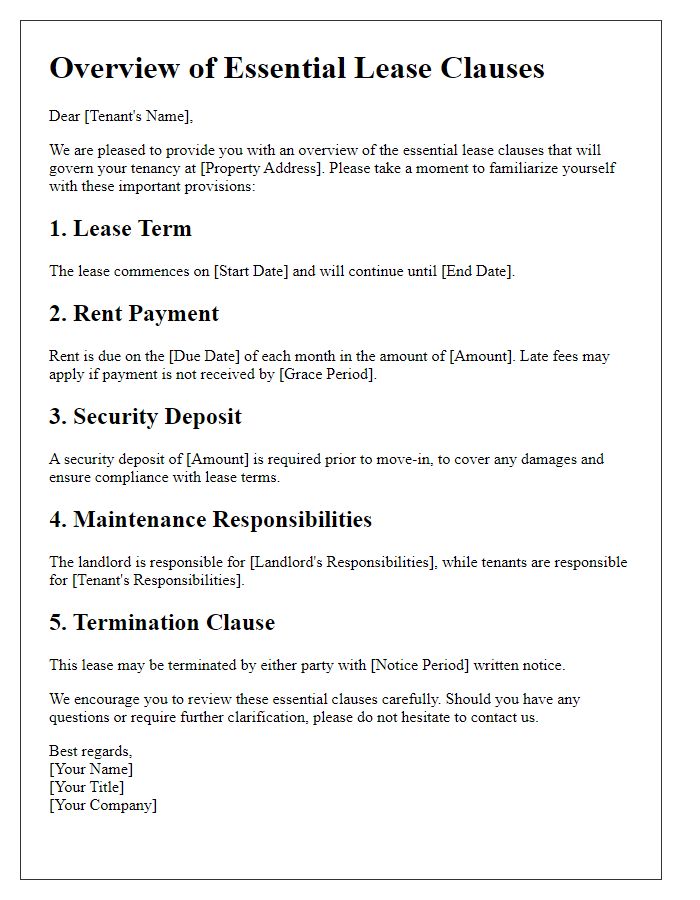
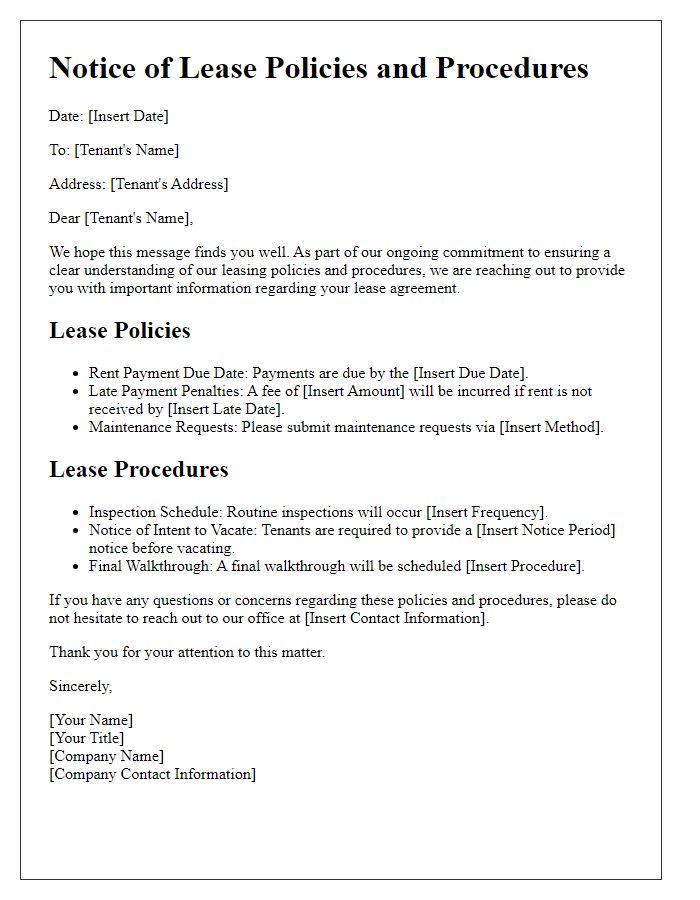
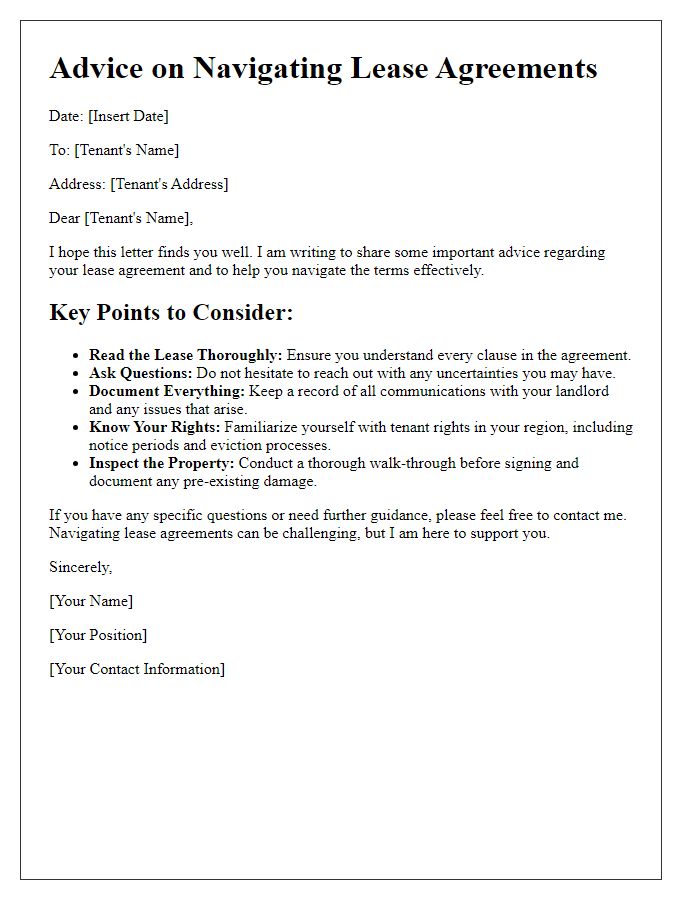

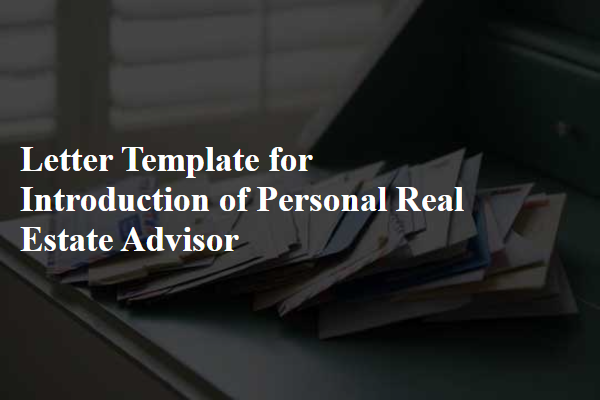
Comments